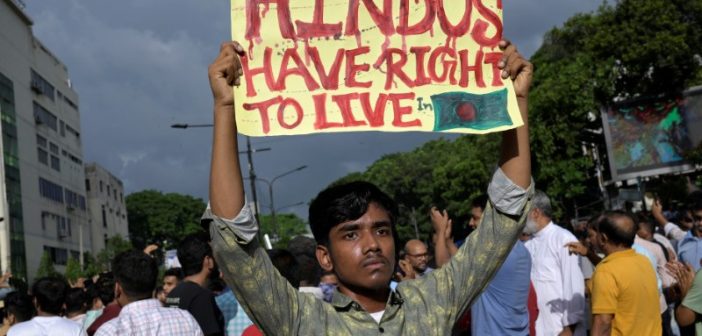The 1971 Liberation War marked a significant moment in South Asian history, as Bangladesh, then East Pakistan, fought for its independence from West Pakistan. India played a pivotal role in this conflict, providing critical military support and shelter to millions of refugees. Despite this, recent developments in Bangladesh indicate a growing sense of ingratitude towards India, coupled with rising anti-Hindu sentiment. This article explores the disconcerting disconnect between the historical bonds formed during the liberation war and the current atmosphere of hostility towards India and its Hindu population.
The Liberation War and India’s Role
In 1971, India was instrumental in supporting the Mukti Bahini (Bangladeshi freedom fighters) in their struggle against the oppressive Pakistani regime. The atrocities committed by the Pakistani military against the Bengali population, particularly the Hindus, were harrowing. Over 10 million refugees fled to India, seeking refuge from the violence. India’s intervention, both diplomatically and militarily, was decisive in securing Bangladesh’s independence. This support, however, was not merely altruistic; it was also motivated by strategic concerns about regional stability and the humanitarian crisis spilling over into India.
Despite the overwhelming support provided by India, including economic and military aid, there has been a gradual erosion of goodwill between the two nations over the decades. Anti-India sentiments have been fueled by various factors, including political narratives, religious extremism, and unresolved bilateral issues such as water sharing disputes and border management.
Rising Anti-Hindu Sentiment
In recent years, there has been an alarming increase in violence against Hindus in Bangladesh, a minority community that has historically been targeted during periods of political instability. This violence has escalated following the resignation of Prime Minister Sheikh Hasina in 2024, leading to widespread attacks on Hindu temples, homes, and businesses. Reports indicate that ISKCON temples and other religious sites have been vandalized, with Hindu community leaders being targeted and killed.
The Bangladesh Hindu Buddhist Christian Unity Council reported that over 52 districts across Bangladesh have witnessed communal violence since early August 2024. The Hindu population, which once constituted 22% of the country’s population in 1951, has dwindled to around 8% today. This decline is largely due to religious persecution, with over 11 million Hindus fleeing Bangladesh between 1964 and 2013.
The Political Climate and Anti-India Narratives
The current wave of violence is not just an outburst of communal hatred but also a reflection of deeper political undercurrents in Bangladesh. The ouster of Sheikh Hasina, a leader who maintained relatively cordial relations with India, has left a vacuum that is being filled by more radical elements. The Bangladesh Nationalist Party (BNP) and Jamaat-e-Islami, known for their anti-India rhetoric, are gaining ground, further stoking anti-Hindu and anti-India sentiments.
Historically, India has been viewed with suspicion by certain segments of the Bangladeshi population, particularly those who believe that India’s support in 1971 was driven by self-interest rather than genuine concern for Bangladesh’s independence. This narrative has been perpetuated by extremist groups, who portray India as a hegemonic power seeking to dominate its smaller neighbors.
The Consequences of Ingratitude
The failure of many Bangladeshis to acknowledge India’s crucial role in their liberation and the protection of Hindu minorities is not just a matter of historical oversight—it has real and dangerous implications. The increasing anti-Hindu violence and the rise of radical elements in Bangladeshi politics threaten to destabilize the region further. Moreover, the growing exodus of Hindus from Bangladesh into India risks creating a new refugee crisis, exacerbating tensions between the two nations.
The Indian government has expressed deep concern over the situation, with Prime Minister Narendra Modi and External Affairs Minister S. Jaishankar calling for the protection of minorities in Bangladesh. However, diplomatic statements alone may not be sufficient to curb the violence or address the root causes of anti-India sentiment.
Conclusion
The recent violence against Hindus in Bangladesh and the resurgence of anti-India sentiment is a troubling reminder of the fragility of the bonds formed during the 1971 Liberation War. While India played a pivotal role in securing Bangladesh’s independence, the gratitude for this support appears to be fading, replaced by a dangerous mix of religious extremism and political opportunism.
For the sake of regional stability and the safety of minority communities, it is imperative that Bangladesh’s leadership takes decisive action to protect its Hindu population and counter the narratives that fuel anti-India sentiment. Only by addressing these issues can the two nations hope to preserve the hard-won peace and cooperation that began over five decades ago.





